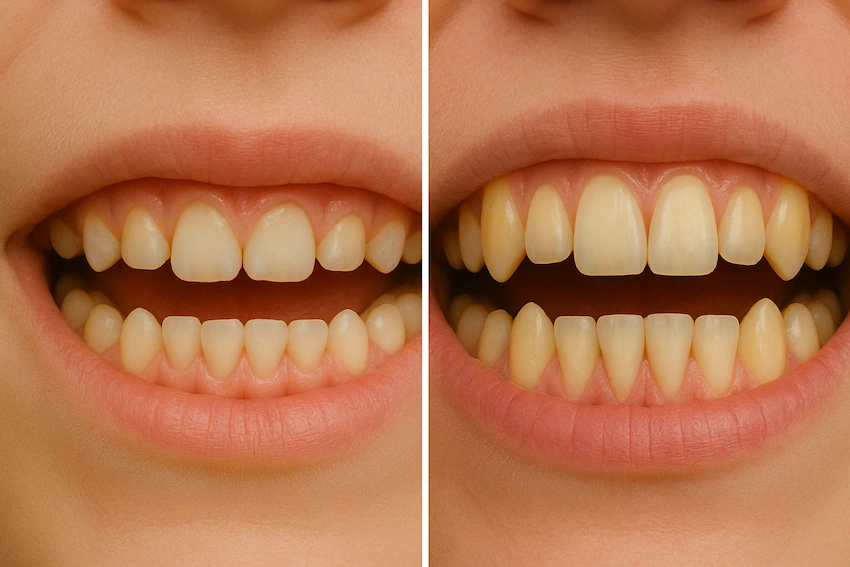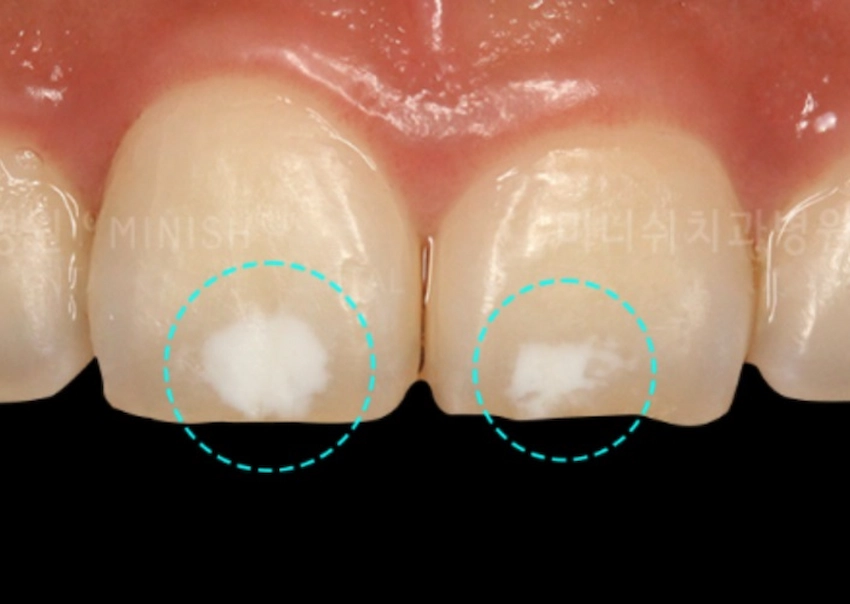🦷 Dental Implant Aftercare: Do’s and Don’ts
Taking Care of Your Dental Implant: Why It Matters 🦷💙
It is more than just an aesthetic option to get a dental implant; on the other hand, it is a decision that will bring good use to your oral health, function, and confidence.
If you had dental implant surgery, your mouth would be special, and it would need taking care of. Proper adherence to the guidelines can avoid infection, alleviate discomfort, and also, a perfect fusion of the implant with the jawbone. It is the whole information about dental implant aftercare in do’s and don’ts moody clear.
✅ Do’s After Getting a Dental Implant
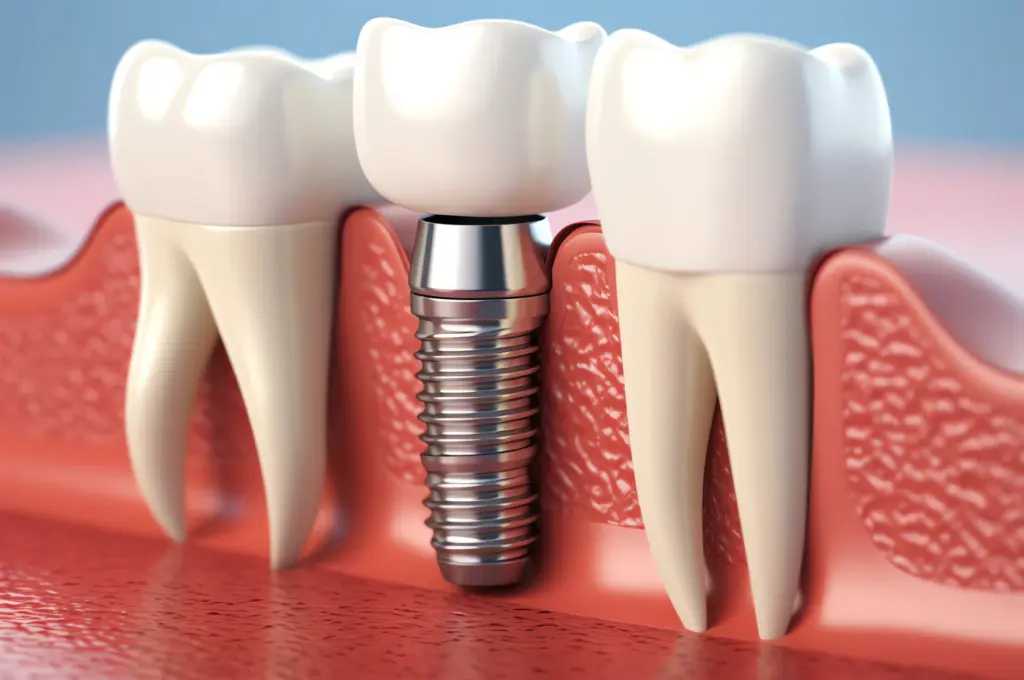
1. Follow Your Dentist’s Instructions Carefully
Surgery, the dentist in charge, will give the patient a detailed list of instructions concerning medication, brushing, and the diet. In short, the main thing is to take medicine exactly as directed.
- Take antibiotics or painkillers exactly as the doctor advises.
- Rinse the wound as recommended to prevent it from getting infected.
2. Maintain Good Oral Hygiene 🪥
The main cause of the implant failure is not oral hygiene. Therefore it is essential to maintain the area’s absolute cleanliness around the implant.
- Brush softly your teeth in the area where the implant is.
- If a dentist recommends, you can use antiseptic mouthwash.
- Don’t clean your mouth too harshly because the process of healing tissues can get irritated.
3. Eat Soft Foods Initially 🍲
It will take some time for the sensitivity in your jaw and gums to go away. During this period, it is recommended that you eat only soft foods.
- Eating soft foods like these will prevent the area around the implant from being strained.
- At the same time, they will reduce the possibility of the implant or the stitches being dislodged.
- Moreover, soft foods will allow the wound to heal without any pressure.
Yogurt, mashed potatoes, scrambled eggs, and smoothies are some of the perfect soft food options.
4. Apply Ice to Reduce Swelling ❄️
A certain amount of swelling that is considered normal takes place after implant surgery. Applying an ice pack on the cheek near the implant site is the best method to alleviate the discomfort.
- Apply for 15–20 minutes only, and take breaks of the same duration between applications.
- Do not use heat within the first 48 hours because it will aggravate the swelling.
5. Keep Follow-Up Appointments 📅

The dentist will examine you several times to check the progress of the healing and also see if the implant is properly joining with the bone.
- The regular follow-ups are not only a method to check for the progress of healing but also a way to identify any complications such as infections or implant failure, early on.
- At Lema Dental Clinic, we help every patient with step-by-step instructions during the recovery period, thereby making sure that they heal properly.
- caramel or toffee which are sticky in nature.
Do not change your diet drastically without your dentist’s approval.
3. Maintain Regular Oral Hygiene
If you don’t clean properly, there will be bacteria that will cause infections and these may lead to peri-implantitis, a very dangerous condition that basically affects the tissue around the implant.
- Brush the teeth in a gentle manner but do not forget to be thorough.
- If you feel the need after meals rinse your mouth.
4. Do Not Use Your Fingers or Tongue to Touch the Implant Site ✋👅
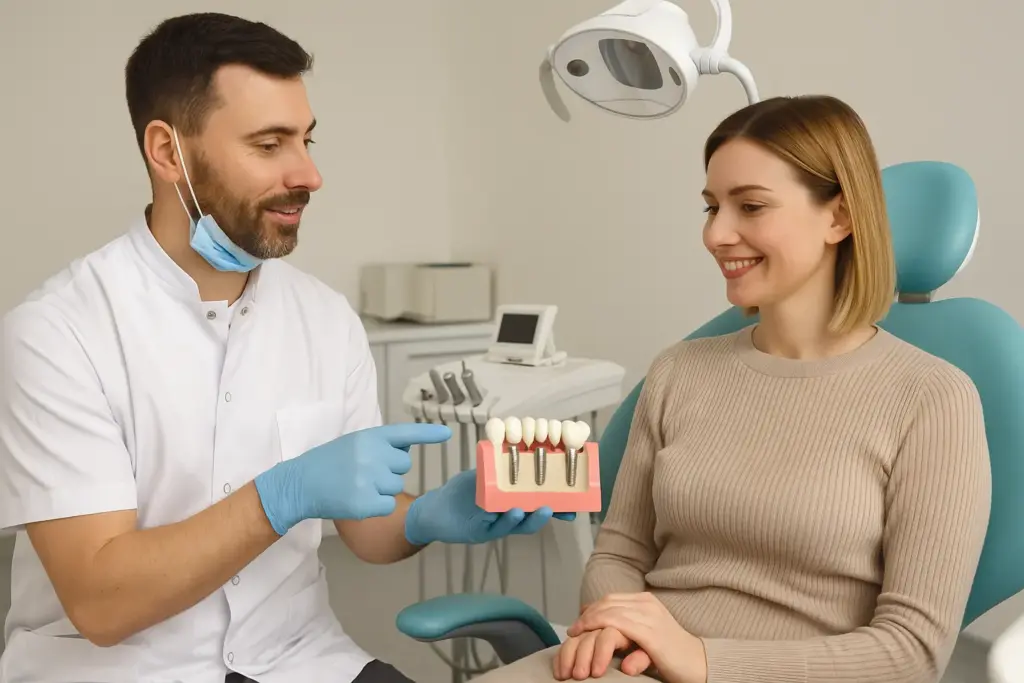
The feeling of curiosity is normal, but pushing or poking the area with the surgery will make it possible for bacteria to enter the area or even harm the healing tissue.
- Do not touch, tap, or push the implant in any way.
5. Do Not Drink Alcohol for the First Few Days 🍷
Alcohol will only make healing harder and may decrease medication effectiveness. Besides that, it can:
- At the incision site, bleeding will be caused.
- Slow down the process of bone integration.
- Use of Night Guard: The night guard will protect your implant if you grind your teeth.
- Implant Flossing: Use floss that is specifically made for the implant or small brushes to get rid of the plaque on hard-to-reach areas.
- Drink Plenty of Water: Water keeps the tissue healthy and the mouth fresh.
- Symptoms Monitoring: Mild discomfort is expected, but in the case of severe pain, swelling, or bleeding, a dentist should be contacted immediately.
We at Lema Dental Clinic in Istanbul, are committed to providing the best dental implant services along with a focus on the hard and soft tissue aftercare. The following are the things that make us different from others:-
- Experienced Implant Specialists: The skilled dentists take care of the right placement and provide assistance.
- Personalized Aftercare Plans: Each patient is given individualized instructions and follow-ups.
- Advanced Technology: High-precision imaging and surgical tools are used for the safe and predictable outcomes.
- Patient Support: Our team is here to answer your questions and make sure that your recovery goes well.
Eventually, we make sure your implant is durable for years by mixing up expert medical care with patient education. This gives you a lovely, and working smile.
🦷 Final Thoughts: Protect Your Investment
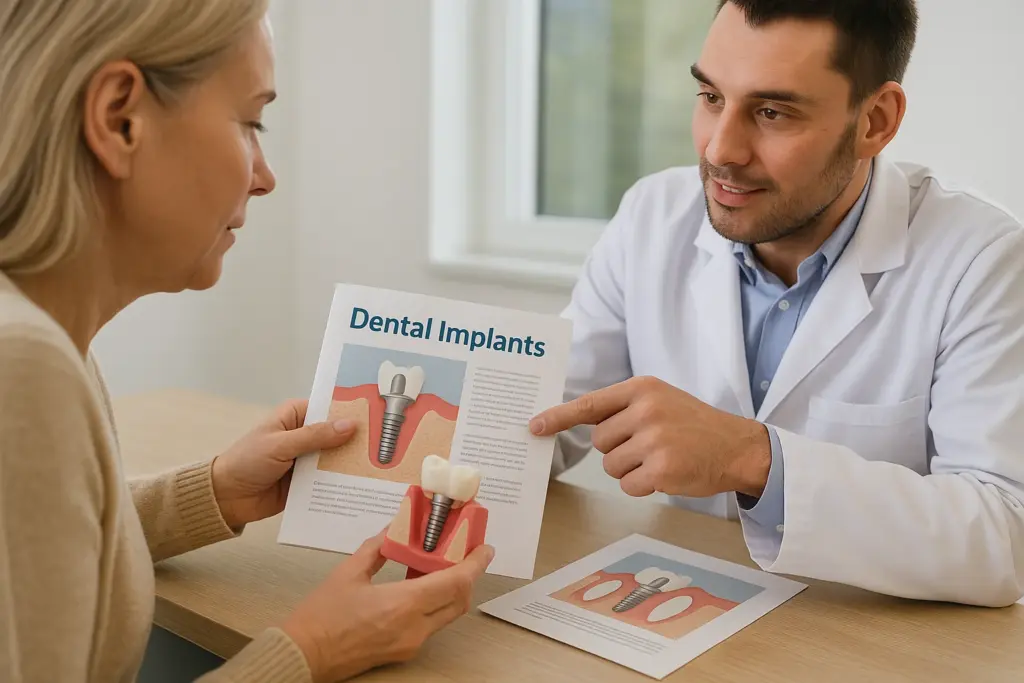
A dental implant is not just about the replacement of the tooth—it is a wise and healthy choice for the next future. By adhering to these do’s and don’ts, you will be able to speed up the healing process, avoid the occurrence of complications, and have your new smile for a long time.
Also: every implant is different, and personalized recommendations from a dentist are very important. In order to have a implant surgery that is safe, effective and last for a long time, the Lema Dental Clinic experts in Istanbul should be trusted. 💙
Most implants integrate with the bone in 3–6 months, though healing varies per patient. Follow-up care ensures proper recovery.
Yes, but gently. Use a soft-bristled toothbrush and avoid scrubbing the implant site.
Mild discomfort and swelling are normal for a few days. Severe pain may indicate a problem—contact your dentist immediately
No, stick to soft foods for the first few days to avoid stress on the implant.
Ignoring aftercare can lead to infection, implant failure, or gum disease, jeopardizing your investment.

